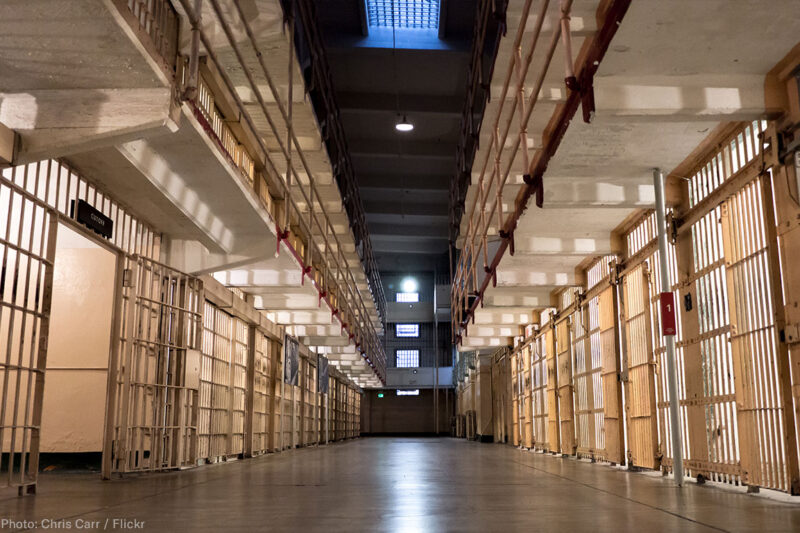
After spending years as the prison capital of the world, a new report indicates that Louisiana has finally shed this shameful title thanks to the historic package of criminal justice reforms passed last year. According to the Prison Policy Initiative, Louisiana’s incarceration rate is now the second highest in the nation, below that of Oklahoma.
This is a major milestone and a testament to the diverse grassroots coalition that came together to pass proven, evidence-based reforms that are reducing our prison population, saving taxpayers millions, and improving public safety. These reforms reined in mandatory minimum sentences, expanded parole eligibility, and stopped people from getting thrown in jail for court fees they couldn’t afford to pay. And they are already paying big dividends for our state and its citizens.
In the year since these laws were passed, our total prison population has dropped by 7.6 percent, and the number of people imprisoned for nonviolent crimes has decreased by 20 percent. Equally promising is that prison admissions for drug possession have dropped by nearly half. And despite the constant fear-mongering of opponents, there are signs that Louisiana’s overall crime rate is down as well.
But this fight isn’t over yet. Far too many people are still languishing behind bars awaiting trial and some of our most extreme sentencing laws have yet to be reformed. Louisiana’s incarceration rate is still way above the national average, which means that taxpayers are still footing the bill for a bloated prison system that has devastated communities of color and failed to make us safer.
That’s why what happened during this past legislative session was so important. After scoring a huge win with the passage of the criminal justice reform package, some people assumed we’d pack up and go home.
They were wrong. We weren’t going anywhere.
The grassroots coalition that had helped pass the most sweeping criminal justice reforms in Louisiana’s history was united and determined to not only protect the progress that we’d made but build on it. In addition to fending off bills that would have dismantled these vital reforms, we went on offense — passing legislation to restore the voting rights of thousands of formerly incarcerated people and giving voters the chance to abolish Louisiana’s abhorrent non-unanimous jury rule.
Throughout, the leaders of this effort were the courageous Louisianans who had been incarcerated themselves. Thanks to their tireless advocacy, Louisiana has finally begun to confront and reckon with its ugly legacy of institutionalized oppression and injustice while building a criminal justice system that’s worthy of the name.
Importantly, this milestone is just the first of many that we must achieve. The fact that Louisiana has dropped to second in incarceration rates shows that we’re on the right track, but we shouldn’t be satisfied with the second worst, so we can’t let up now.
A number of reforms recommended by the Justice Reinvestment Task Force still haven’t become law, such as removing nonviolent offenders from the state’s habitual offender law and extending parole eligibility to those longest serving individuals who have paid their debts to society. An untold number of Louisianans have been locked behind bars awaiting trial for weeks, months and even years — separated from their families and communities.
And this November 6, Louisiana voters will finally have the chance to abolish the state’s split-jury rule and end the insane practice of convicting people of a felony without the unanimous consent of a jury. Early voting begins October 23, and it’s vital that everyone who cares about a fair criminal justice system comes out to vote “yes” to abolish this arcane and racist practice.
In short, we need to keep working, marching, rallying, advocating and, most importantly, showing up at the polls in support of policies and candidates that will reduce our prison population and combat the racial disparities in our criminal justice system.




